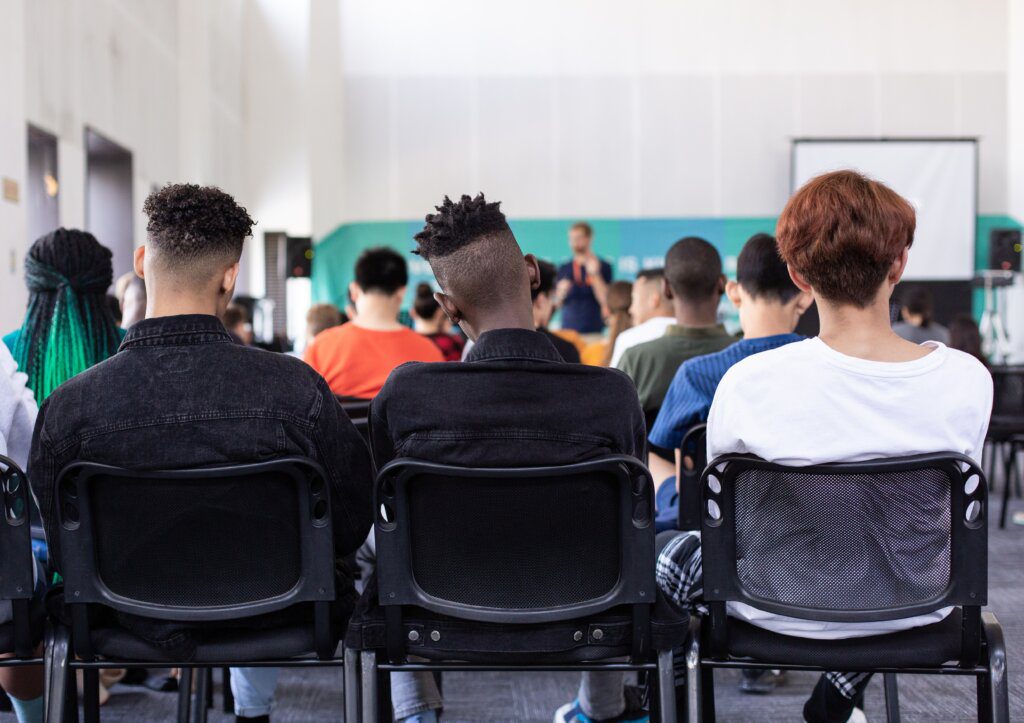Education is often not focused on academic achievement. However, in today’s converting international, the importance of qualifications cannot be overstated, especially for college students with special needs.
Soft skills include some verbal communication and problem-solving skills that can be important for fulfilling a variety of life factors.
This article highlights the importance of soft skills for special needs students. Explores their benefits and offers sensible ways and recommendations to enhance them.
Defining Tender Capabilities
Soft skills for special needs students are essentially technical skills that allow individuals to communicate and communicate successfully with others. They are also commonly called people skills. These abilities increase overall performance.
Have great value for personal as well as professional achievements. While academic excellence is undoubtedly important, talent development is also critical to the growth and development of all individuals, including those with unique aspirations.
Importance of Soft Skills for Special Needs Students
Students with unique aspirations for their friends without ambitions excel in their soft skills. These skills empower people to effectively navigate demanding existential situations while promoting independence and well-being.
Soft skills for special needs students often cover skills that include interpersonal communication and emotional intelligence, while hard skills tend to be more concrete and can be specifically taught.
The Benefits of Strong Soft Skills for Special Needs Students

Having strong interpersonal skills has many benefits for college students that extend beyond the schoolroom. These abilities activate the Gate of Destiny starting from the Expert Boom.
- Better communication with others: The soft skills involved in conflict resolution and powerful conversations underpin interpersonal interactions.
By developing these skills, college students can aspire to bridge the communication gap they often face in building relationships with friends and adults.
- Better academic performance: Developing abilities are linked to better achievement. When students have problem-solving and critical thinking skills, they can approach challenges in ways that lead to learning outcomes. Furthermore, when they are more elaborate and detail-oriented, their engagement in activities is also better.
- Increasing independence: Soft skills contribute to self-sufficiency in aspiring students. Through time management and productivity strategies, those skills sell autonomy. Reduce dependence on outside help.
- Wider employment opportunities: Qualifying provides ample opportunities for future employment. As college students transition to desire, in the body of workers, the valuable assets that possess sought-after characteristics increase.
Employers highly value individuals who possess communication, leadership, and time management skills as these traits are highly sought after in applicants.
Soft Skills for Special Needs Students with Learning Disabilities
Students majoring in disabilities form a group of demanding situations involving physical, cognitive, sensory, and developmental issues. Improving the ability to meet the aspirations of each student is essential to ensure overall growth and success.
- A customized approach: Understanding the issues faced by students with disabilities is crucial. For example, facilitation techniques may benefit college students in difficult situations, while those with sensory impairments may also need communication opportunities. By customizing soft skills for special needs students coaching based on aspirations, inclusion can be guaranteed.
- Focus on strengths: The key to improving abilities in students with needs lies in finding and capitalizing on their strengths.
While there may be limitations in certain areas, valuing and nurturing existing talent lays the foundation for future growth. Celebrating successes complements self-esteem. Gains effective skills in the surrounding environment.
Strategies for Developing Soft Skills for Special Needs Students
Developing the soft skills for special needs students involves using unique techniques that address their unique needs. Here are some powerful strategies:
- Inclusive Activities: Inclusive games are activities that promote cooperation and teamwork. These sports need to allow all university college students to actively participate and contribute regardless of their abilities.
- Encouraging real-life events: Engage college students in position gambling physical activities that simulate real-life situations. Through this arms-on technique, they can hone their skills in a supervised environment.
- Customized Learning Programs: Create customized lesson plans that meet the specific desires of each scholar in terms of smooth skill development. These plans must be flexible and adaptable, allowing for techniques to evolve and adjust as a result.
Top 10 Soft Skills are Essential for Special Needs Students

Although “soft skills” Embodying many abilities, there are certain abilities that are especially beneficial for students with special needs. Here are the top 10 soft skills for special needs students that can greatly improve your life.
- Effective Communication: The ability to communicate effectively plays a role in establishing and maintaining relationships. Needy students can benefit from developing their non-verbal communication skills, as it allows them to express their thoughts and feelings clearly without anxiety.
- Conflict Resolution: Teaching techniques for conflict resolution are important. By learning coping strategies, aspiring college students can foster a social environment.
- Personal Efficiency: Prioritizing duties, juggling responsibilities, and managing time effectively are important for increasing productivity. Acquiring these skills facilitates individuals to achieve rapid objective success in all aspects of life.
- Problem Solving: Being able to solve problems is important for aspiring students, as it allows them to deal with difficult situations in time. This talent is no longer the easiest to use inside the lecture room but also proves valuable in their daily lives.
- Critical Surprise: Developing fantastic abilities allows university students to investigate data, make knowledgeable options, and develop a way to deeply learn about desires.
- Professional Skills: Professionalism encompasses reliability, punctuality, and progress with an effective image ethic. These functions comprehensively carry out the exact goals of university college college students to succeed in expert international.
- Time Control: Time management skills are critical to balancing teaching and personal responsibilities. College Teaching College College students’ desires to manage their time effectively contribute to traditional success.
- Leadership: Developing managerial skills creates a void and encourages specific goals for university college students to take initiative both in the academic environment and beyond.
- Positive Mindset: Having a great attitude is transformative. Aspiring students who rely on traumatic situations are extra resilient and better equipped to navigate the American underworld.
- Attention to Detail: Elemental awareness is a valuable ability known to enhance overall overall performance. Specific Goals College College students can benefit from fulfilling this competency in several aspects of their lives, including teaching responsibilities and personal duties.
Tips for Teaching Soft Skills for Special Needs Students

Teaching Special Desires Soft Skills College students want to be aggressive, innovative, and have an outstanding attitude. Here are a few pointers on how to properly convert key competencies:
- Create a supportive environment: It is important to establish a supportive and thorough understanding of the environment. Special Desires University College College students once they have experienced concrete and normal, foster an environment that is conducive to mildly viable development.
- Use Visual Aids: Add visual aids to embellish concepts and simplify facts. Visual cues can be useful for college kids with disabilities in general, to improve comprehension.
- Provide General Feedback: Providing common feedback is critical to screen development and enhancing powerful behaviors. Constructive feedback allows college students to learn about their specific strengths and areas for improvement.
- Foster Monday Talks: Encourage peer interaction to sell social work improvements. Unique desires university college students to fulfill partnership teamwork and conversation with their friends in a few games.
- Connect the Distance: Use generation to make learning memories beautiful. Educational apps, interactive simulations, and assisted living can offer engaging structures to enhance coping skills.
Conclusion
In surrender, easy abilities are useful for college students to overall improvement of correct goals. These abilities empower them to navigate challenges, develop independence, and shape their familiar existence.
By adopting customized techniques that specialize in non-public strengths, academics can play an important role in equipping university students with exact dreams with a system they can use in every academic and real world. I want to succeed.





